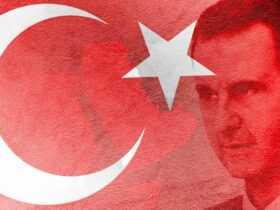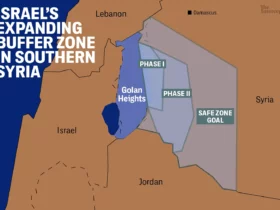By Onur Sinan Güzaltan
UWI author political scientist Onur Sinan Güzaltan was guest to Turkish TV channel Ulusal Kanal. Güzaltan shared his views on the questions on Kursk and afterward.
Translated into English by UWI.
An operation of failure
How do you evaluate the developments following the Ukrainian army’s attack on Kursk?
The Chief of General Staff of Ukraine made a statement after the operation in Kursk. In the statement, he mentioned that they tried to use the Kursk attack as bait against the Russian state and army, but they failed. He explained their tactic as follows: by attacking Kursk, they aimed to make Russia move its troops from Donbas and the surrounding areas towards this direction. However, contrary to Ukraine’s expectations, we saw that Russia did not move its forces from Donbas but from the Kaliningrad direction. Therefore, Ukraine’s plan failed, as the Chief of General Staff acknowledged.
Disrupting the rhythm and course of Russia
If we look at the overall course since the start of Russia’s special military operation, we see that Ukraine and the Western powers behind Ukraine have made several attempts to disrupt the rhythm and course of Russia’s operation. Initially, they carried out assassinations, like the one targeting prominent intellectual Darya Dugina.
Then, they launched terrorist attacks, the largest of which took place in Crocus. Provocations at the Zaporizhzhia nuclear power plant should also be seen in this context. There is also a nuclear power plant around Kursk. According to some assessments, Ukraine’s goal may have been to make provocations at this plant.
Recently, Russia has also stated that the West and Ukraine are preparing for provocations, including the use of chemical weapons. The term “dirty bomb” has been mentioned many times.
When we look at these all together, it becomes clear that Kursk is another link in this chain. As I mentioned, the goal of these attacks is to disrupt the rhythm and progress of Russia’s special military operation. However, they have failed in achieving this.
There is another possibility worth mentioning: With the summer, it was expected that Russia would make new moves in the Black Sea, in the direction of Odessa. Perhaps Ukraine and the Western powers are trying to delay this, because Odessa is the last stronghold for Ukraine. If Ukraine loses it, it will be completely cut off from the Black Sea, becoming a landlocked country. This would almost end Ukraine’s usefulness to the West.
Usual suspects: the US and the UK
I also want to highlight the timing of these types of attacks by the West and Ukraine. Whenever there are rising voices in the West to make peace or normalize relations with Russia, such provocations follow. The attack in Kursk came right after Hungarian Prime Minister Viktor Orbán visited both Kyiv and Moscow in order to pave the way for peace. The question that needs to be asked here is: Who does not want to see relations between Europe and Russia normalize? All signs point to two powers: the US and the UK.
Europe’s ruling classes vs Europe’s interests
Russian Foreign Minister Lavrov said that Western governments are like children playing with matches, unaware of what they are doing. He was referring to the nuclear danger. How do you assess this?
At the root of the war in Ukraine, from a broader perspective, lies the goal of severing the ties between Europe and Russia and other Asian countries. Also, one of the routes of China’s Belt and Road Initiative extending towards the West passes through Ukraine. They want to block this route.
In this context, the critical question could be put as follows: Will Europe surrender its will to Washington and follow its lead, or will it establish more balanced and friendly relations with countries like Russia, China, Türkiye and Iran? The ruling classes in Europe continue to exist by surrendering to the US plans and by being hostile to Russia. However, Europe’s interests lie in Eurasia, both in terms of energy and markets.
We are already seeing the decline of pro-Washington politics in Europe. The UK, which is known for its political stability, has changed several prime ministers in recent years. In France, Macron is refusing to allow the winning left-wing coalition to form a government by bypassing the constitution. Germany’s economic troubles are well-known and widely discussed. And it is clear that Ukraine’s military is losing.
Lavrov and Russia see that the weakening Anglo-Saxon powers could engage in all kinds of provocations, including nuclear ones. We are here talking about a power that attempted to assassinate Trump.
In addition to nuclear provocations, there could be chemical attack provocations or an attack on Belarus.

















Leave a Reply